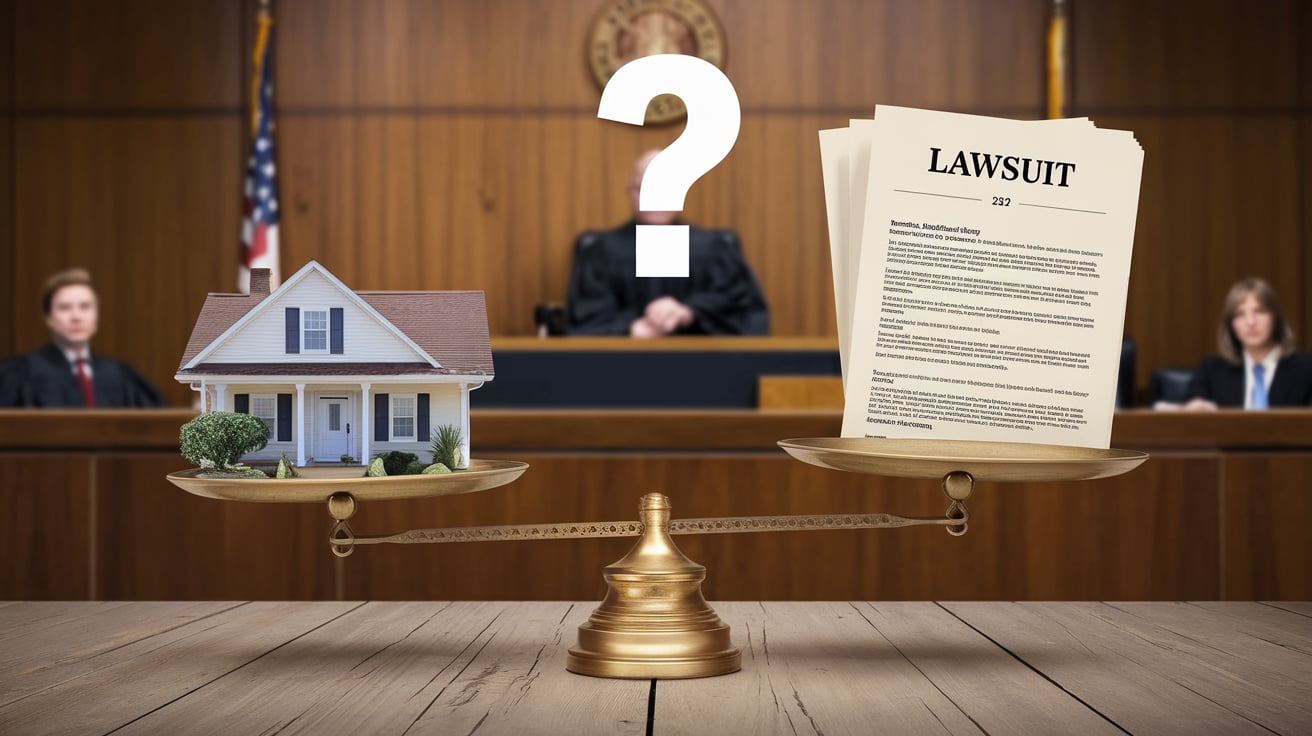Introduction:
The 72 Sold lawsuit has captured significant attention in the real estate industry, shedding light on the complexities of innovative business models in a competitive sector. The case revolves around 72 Sold, a company known for its promise to help homeowners sell their properties in 72 hours or less. While their approach has been praised for its efficiency, the lawsuit has raised questions about the legality and ethics of their practices. This article provides an in-depth exploration of the 72 Sold lawsuit, examining its background, key arguments, and potential consequences for the industry.
The Rise of 72 Sold
72 Sold entered the real estate market with a disruptive model, offering homeowners a streamlined process to sell their properties quickly. The company marketed itself as a modern alternative to traditional real estate agents, utilising a proprietary system designed to attract buyers efficiently. Their bold claims and innovative strategies positioned them as a leader in the fast-sale niche.
However, with their success came scrutiny. Competitors and regulators began to question whether their practices adhered to the legal and ethical standards of the real estate industry. This scrutiny ultimately culminated in the 72 Sold lawsuit, bringing the company’s methods into sharp focus.
The Core of the 72-Sold Lawsuit
At the heart of the 72 Sold lawsuit are allegations surrounding deceptive advertising and potentially misleading business practices. Plaintiffs argue that the company’s promise to sell homes in 72 hours creates unrealistic seller expectations. While 72 Sold has clarified that the 72-hour timeline refers to receiving offers rather than completing transactions, critics claim that the messaging remains ambiguous.
Another central contention involves the company’s fee structure. Traditional real estate agents have accused 72 Sold of undercutting the market with fees that are not always transparent. The lawsuit alleges these practices may confuse consumers and disadvantage competitors who operate under stricter regulatory guidelines.
Legal Arguments and Industry Reactions
The 72 Sold lawsuit has drawn legal arguments from both sides. Plaintiffs emphasize the need for transparency and adherence to industry standards, arguing that misleading practices can harm individual homeowners and the broader real estate market. They assert that consumers deserve clarity about the company’s services and how its fees compare to traditional agents.
On the other hand, 72 Sold has defended its practices, stating that its innovative model provides real value to sellers. The company has highlighted its success stories, showcasing homeowners who achieved quick and profitable sales through its system. Its legal team has argued that the lawsuit may be motivated by competitors seeking to stifle innovation in the industry.
Regulatory Implications
The 72 Sold lawsuit has prompted increased attention from regulatory bodies overseeing real estate practices. Agencies are examining whether the company’s advertising complies with laws designed to protect consumers from false or misleading claims. The lawsuit’s outcome could set a precedent for how alternative business models in real estate are regulated.
Moreover, the case has sparked broader discussions about balancing innovation and compliance. As more companies adopt unconventional methods to disrupt traditional industries, regulators face the challenge of ensuring fair competition while fostering innovation.
Impact on the Real Estate Industry
The 72 Sold lawsuit has significant implications for the real estate sector. Traditional agents and brokerage firms closely watch the case, as its outcome could influence competitive dynamics. If the lawsuit results in stricter regulations for companies like 72 Sold, it may level the playing field for traditional agents. Conversely, a favorable ruling for 72 Sold could encourage other startups to adopt similar models.
For consumers, the case highlights the importance of understanding the terms and conditions of real estate services. The lawsuit serves as a reminder to carefully evaluate marketing claims and seek clarity on fees, timelines, and processes before choosing a service provider.
Key Developments in the 72 Sold Lawsuit
Several significant developments have shaped the progression of the 72 Sold lawsuit. Early hearings have focused on interpreting advertising regulations and determining determining whether the company’s messaging constitutes false advertising. Expert witnesses from both sides have provided insights into industry norms and consumer expectations.
Settlement discussions have also been a point of interest. While both parties have expressed willingness to resolve the dispute, differences in their positions have prevented a resolution thus far. Legal analysts predict that the case could set important precedents, particularly regarding regulating innovative business models in real estate.
Public Perception and Media Coverage
The 72 Sold lawsuit has garnered extensive media coverage, with opinions divided on the company’s practices. Proponents of 72 Sold argue that the lawsuit represents resistance to change from an industry reluctant to embrace innovation. They point to the company’s popularity among homeowners as evidence of its value.
Critics, however, emphasize accountability, arguing that verifiable results must back bold marketing claimser advocacy groups have weighed in, calling for greater transparency and education to ensure homeowners make informed decisions.
The Broader Implications for Business Innovation
Beyond the real estate industry, the 72 Sold lawsuit raises questions about the challenges faced by innovative businesses. Disruptive companies often face legal and regulatory hurdles as they challenge established norms. While such challenges can slow progress, they also serve as a check on practices that may exploit gaps in existing regulations.
The lawsuit’s outcome could influence how startups approach marketing and compliance in heavily regulated industries. It highlights the importance of balancing bold innovation with responsibility and adherence to the law.
Lessons for Homeowners and Real Estate Professionals
For homeowners, the 72 Sold lawsuit underscores the importance of due diligence when choosing a real estate service provider. Understanding how a company operates, including its fee structure and timeline guarantees, is essential to making informed decisions.
The case reminds real estate professionals of the industry’s competitive pressures. Adapting to new business models and emphasizing transparency and value will be crucial for staying relevant in a rapidly evolving market.
Conclusion
The 72 Sold lawsuit represents a pivotal moment for the real estate industry, spotlighting the intersection of innovation and regulation. As the case unfolds, its outcome will likely shape real estate practices’ future and set marketing and transparency standards. Whether it results in stricter oversight or validates the company’s model, the lawsuit highlights the ongoing evolution of an industry that continues to adapt to changing consumer expectations and technological advancements. As homeowners, real estate professionals, and regulators reflect on the case, the lessons learned will resonate far beyond this specific legal battle.




